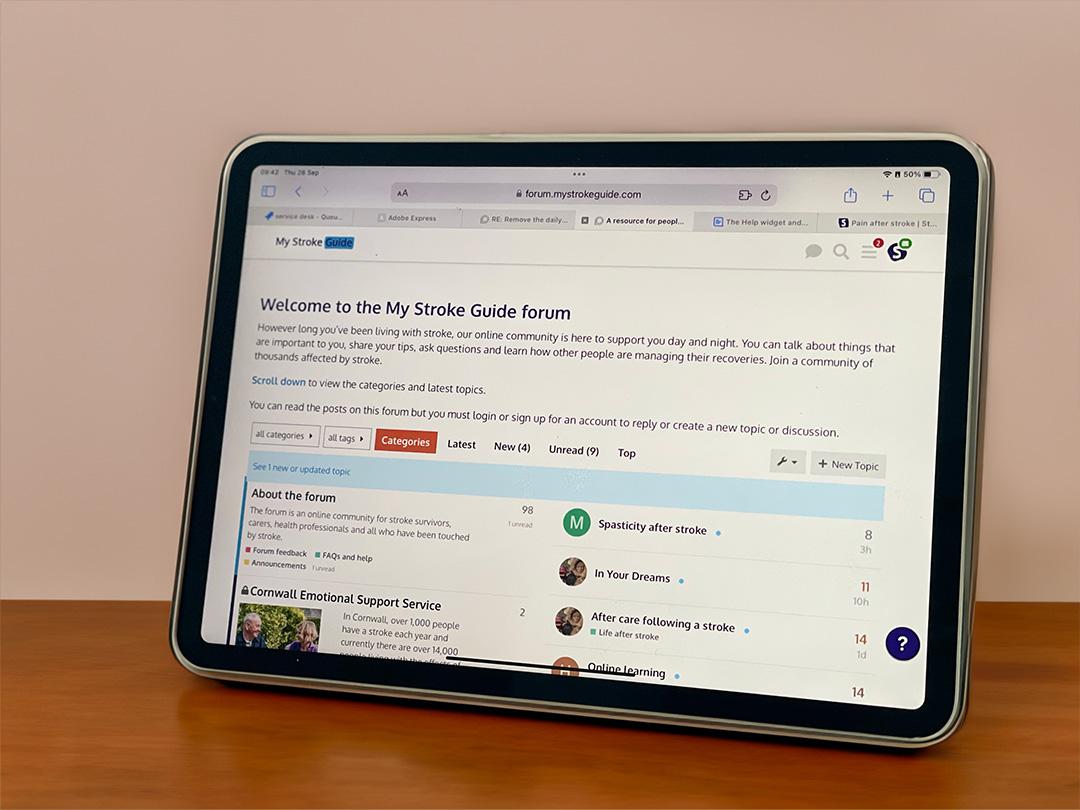
October marks UK Black History Month, celebrating trailblazers who shaped every aspect of British society. This month spotlights healthcare pioneers and heroes in UK history.
Why Black History month matters
It's no big secret that people of colour and minority ethnic communities often bear a disproportionate burden than most when it comes to healthcare, education, housing and several other sectors across the UK and the around the globe.
Despite this, people of African and Caribbean descent in the UK have persevered and demonstrated remarkable resilience, contributing immensely to the advancement of medicine and the fight for equality and justice in the NHS, their communities and beyond. So it's important we acknowledge and pay tribute to the legends who have left an indelible mark on society and whose legacies have influenced future generations.
Lets take a look at some of our most prominent heroes and heroines who have made healthcare history.
Mary Seacole - Nurse and War Heroine

(Image source: Wikimedia Commons)
Starting with one of the greats, Mary Seacole was undoubtedly a pioneer in her field; becoming an icon known for her fearlessness, courage, compassion and her fight against the tides of racism and discrimination.
Originally from Kingston, Jamaica, she began her career as a healer. Once arriving in the UK, she bravely requested the British War Office to deploy her to treat wounded soldiers during the Crimean War as an army nurse, but was declined due to racial prejudices.
Undeterred, this only spurred her onwards to make her wish a reality. She took matters into her own hands by funding her own travel to the Crimea and established her services at the "British Hotel", becoming a much needed medical centre for soldiers. Although she was not officially part of the British Army Medical Services, she provided care and support to soldiers of her own volition.
It goes without saying that she not only put herself in mortal danger, but also took her Hippocratic oath seriously by ensuring the wellbeing of the soldiers she treated above all else. Her dedication elevated her commitment as a medical professional to an extraordinary level, and she will forever be remembered as a heroine in her own right.
Mary's legacy lives on to this day, continued by the Mary Seacole Trust (MST), their mission is to acknowledge individuals from ethnic communities who have made significant contributions to society. You can also visit her statue (pictured) outside St. Thomas Hospital in London, and just this week, (1 October 2023) Seacole made history again as the first Jamaican/British woman printed on a Royal Mint coin.
Dr John Alcindor - Physician and World War I Hero

(Image source: Wikimedia Commons)
Dr John Alcindor was a medical physician originally from Trinidad, who advocated against racial injustice in Britain in an official capacity as President of the African Progress Union in 1921.
He originally started his education in medicine in Trinidad, but then went on to study at Edinburgh University in Scotland after winning a much sought after Island Scholarship. He graduated in 1899 and started practising as a physician in many London hospitals over the years.
As World War I erupted, he applied to join the Royal Army Medical Corps but was refused, instead he signed up to the British Red Cross and through his diligent work received the coveted Red Cross medal caring for the wounded at rail stations across London.
He went on to serve as senior district medical officer of the London borough of Paddington from 1921 until his death. Dr Alcindor became known for his incredible work ethic, helping people from all walks of life, officially being dubbed 'The Black Doctor of Paddington'.
He contributed to research on influenza, tuberculosis and the correlation between poverty and cancer by studying the effects of impoverished communities and poor diet.
Dr Harold Moody - Humanitarian and Civil Rights Activist

(Image source: Wikimedia Commons)
Dr Harold Moody was a trailblazing figure not just in British medicine but also in civil rights activism. He began his journey from Jamaica to the UK in 1904 to pursue a medical degree at Kings College London, becoming one of Britain's first Black doctors. Once he graduated, he encountered many difficulties getting work as a practicing physician. He was refused at every turn because of the colour of his skin and repeatedly told that no one wanted to be treated by a Black doctor. Finally, after three years of rejection he set up his own GP practice in Peckham, South London.
To further the fight against racial injustice, Dr Harold Moody founded the League of Coloured Peoples (LCP) in 1931. The organisation's mission aimed at fighting rampant racism and improving the living conditions of Black people in Britain. His tireless efforts laid the groundwork for the future civil rights movement in the UK, making him a revered and influential figure in British history. To reach more people the league printed literature in form of a magazine called The Keys, an analogy of the black and white keys of a piano, sitting side by side, played in harmony with one another. A beautiful sentiment towards his vision of a better future, and a harmonious and integrated community.
Needless to say his legacy goes beyond medicine and human rights activism, his commitment to improving the social injustice and racial equality in Britain paved the way for future generations of human rights activists, inspiring and motivating them to continue the fight for the rights and advancement of people of colour in the UK.
In 1995, Dr Harold Moody was honoured with an English Heritage Blue Plaque. It can be seen at his former home (pictured above) at 164 Queen’s Road, Peckham, London SE15.
Annie Brewster - Nurse Ophthalmic

(Image source: Wikimedia Commons)
Nurse Annie Brewster was born in 1858 on the island of St Vincent to a wealthy merchant family. Her father moved Annie and her sister Laura to the United Kingdom in the 1860s. In 1881, she was enlisted as a nurse by the London Hospital in Whitechapel, which catered to mainly to the destitute and culturally varied community.
Because of Annie's commendable work ethic, she quickly rose through the ranks starting off as a trainee nurse in 1881, after only three years, she was inducted into the hospitals nursing staff and not long after that was promoted as nurse in charge of the Ophthalmic ward in 1888, it was at this time she became known as 'Nurse Ophthalmic'. Unfortunately, she died at the age of 43 in 1902 after needing an emergency operation.
She was eventually discovered by Southwark Historian Stephen Bourne, who came across her grave at the City of London Cemetery in the London Borough of Newham when he was researching the lives of Black nurses before the Windrush generation. According to Stephen's research, Annie was was held in high esteem by her colleagues and those she treated, affectionately known as 'Nurse Ophthalmic' because of her efforts in supporting elderly patients who were experiencing vision loss.
Annie Brewster's unwavering dedication to her patients and her tireless efforts to promote the importance of eye health makes her a true pioneer never to be forgotten as she once was. Her compassion and expertise have left a lasting and invaluable impact on the field of ophthalmology nursing.
Dame Elizabeth Nneka Anionwu - Nurse and Professor Emeritus

(Image source: Wikimedia Commons)
Lastly, we would like to recognise Dame Elizabeth Anionwu as our modern day heroine and nurse pioneer.
Dame Anionwu, was born in Birmingham, England, on July 19, 1947. She is of Nigerian and Irish descent. She is a well-renowned nurse and healthcare leader known for her integral part in establishing the first UK screening and counselling centre for Sickle Cell and Thalassaemia in Brent in 1979.
She also co-authored an Open University Press book 'Sickle Cell and Thalassaemia: The Politics of Sickle Cell and Thalassaemia' in 2001 with Professor Karl Atkin. It is her tireless advocacy for patients suffering from these genetic blood disorders, which are particularly prevalent among people of colour, that has been credited with spanning several decades.
The work of Dame Elizabeth Anionwu in the field of sickle cell disease is inspiration drawn from her admiration of Mary Seacole and her dedication to providing healthcare for everyone. In the same way that Seacole faced many challenges because of her ethnicity, she too faced many challenges in the 60's and 70's as a budding nurse. Although that did not deter her, she never relented when it came to supporting those with Sickle Cell disease and Thalassemia.
Evidenced in recognition of her incredible contributions to nursing and healthcare, she was awarded a damehood 2017, and honoured as part of the 2020 New Year's Honours list, and has continued to demonstrate her commitment to advancing healthcare, promoting diversity and inclusion in the nursing profession, and of course advocating for Sickle Cell and Thalassemia patients.
Today, she serves as Patron of the Sickle Cell Society, the Nigerian Nurses Charitable Association (UK) and the Sickle and Thalassaemia Association of Nurses, Midwives & Associated Professionals (SATANMAP).
In celebrating Black heroes and pioneers in British healthcare history, we're paying tribute to their incredible contributions. Their stories remind us of the power of diversity in healthcare and how it's changing the future. They show us that with determination and creativity, we can make healthcare better for everyone.
Other blogs in this category

The Help widget - improving the forum
You might have noticed that question mark icon at the bottom…
Learn more

Have your say in We Are Undefeatable's public consultation!
This September, the We Are Undefeatable team are gathering ideas…
Learn more

